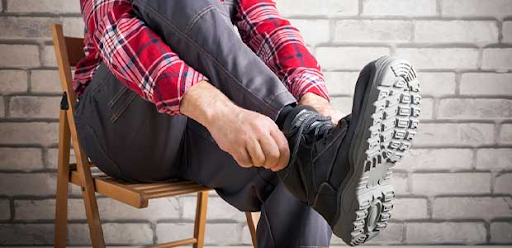The hospitality industry is one that demands long hours on your feet, often scurrying across slippery surfaces, which makes it integral to discuss the importance of appropriate footwear in this sector. A key aspect lies in the selection of anti slip shoes that not only ensure the safety of the staff but also enhance their performance by providing comfort during those long shifts. Understanding the technical attributes and benefits of such footwear is essential for any hospitality professional aiming to maintain a safe and efficient working environment.
Understanding Slip-Resistant Shoes
Slip resistant shoes have been engineered with the sole focus of preventing accidents on slick floors – a common hazard in the hospitality industry. But what exactly makes a shoe slip-resistant? It’s measured using industry standards assessing the coefficient of friction that the shoes maintain against different surfaces. Key features of slip resistant shoes include a specially designed tread pattern, durable materials, and a sole made of slip-resistant compounds.
The Difference Between Anti-Slip and Slip-Resistant Shoes
Understanding footwear terminology is crucial when it comes to workplace safety. While often used interchangeably, “anti-slip” and “slip-resistant” may denote slight differences in certification and adherence to safety standards. It’s pivotal to be aware that not all shoes branded as anti-slip provide the same level of slip resistance, highlighting the importance of looking for certifications and industry standards that authenticate a shoe’s safety claims.
Benefits of Wearing Anti-Slip Shoes in Hospitality
Wearing anti-slip shoes can drastically reduce accidents and injuries, creating a safer workplace for everyone involved. It’s not just about preventing falls; the right shoes can also improve worker comfort and performance, contributing to happier, more efficient staff. Additionally, there are legal and insurance considerations to keep in mind, as proper safety footwear may be a regulatory requirement and can affect insurance premiums and liability in the case of workplace accidents.
How to Choose the Right Anti Slip Shoes for Hospitality Work
Choosing the right anti slip shoes for hospitality work involves several considerations. Firstly, assess the work environment and its specific hazards. Evaluate both fit and comfort, as these elements are vital for individuals who spend much time on their feet. The shoe design and material should match the challenges of the work environment while maintaining a professional appearance.
Maintenance and Care for Anti Slip Shoes
A robust maintenance and care routine can extend the life of anti-slip shoes. Regular cleaning and maintaining hygiene is essential, especially within the hospitality industry. Shoes should be regularly inspected for wear and replaced when necessary. Employing a few simple care tips can prolong the lifespan of your footwear, ensuring safety and comfort over more extended periods.
Top Brands and Recommendations for Hospitality Footwear
Several brands stand out when it comes to anti-slip hospitality shoes. While providing a list of popular brands, one should consider product reviews and comparisons to make an informed choice. Here’s a quick analysis of some favored brands:
| Brand | Comfort | Durability | Slip Resistance |
| Brand A | High | High | Excellent |
| Brand B | Medium | High | Very Good |
| Brand C | High | Medium | Good |
Quality hospitality footwear can be purchased from dedicated workwear stores or online platforms that specialize in professional footwear.
Conclusion
To sum up, the significance of anti slip shoes in the realm of hospitality cannot be overstated. The myriad of benefits contributes not only to the well-being and efficiency of the staff but also to overall workplace safety. Investing in high-quality footwear is investing in the safety and productivity of the hospitality industry. With a better understanding of what to look for in anti-slip shoes, maintenance practices, and where to find the best products, hospitality workers can take confident steps towards a safer working environment.











